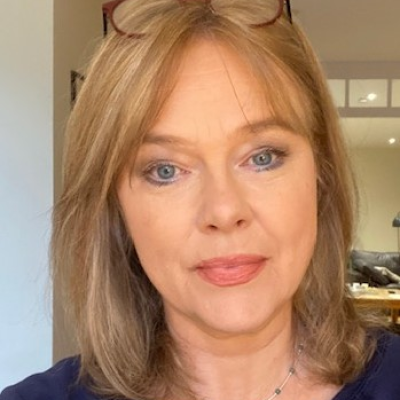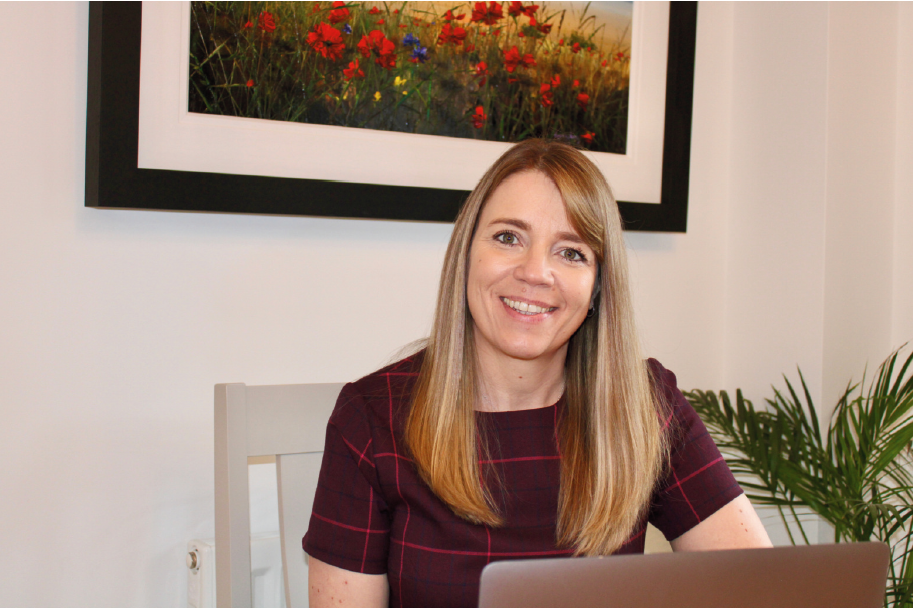Are you a 'cycle breaker'? We ask two therapists how to overcome generational dysfunction in your own parenting journey
How to break unhelpful parenting behaviours that you learned from childhood

If you spend time on parenting sites or follow parenting influencers on Instagram and TikTok, you’ll probably have heard the term ‘cycle-breaker’. But what does it mean, and how can you begin to break with unhelpful parenting strategies you inherited from your parents?
Generational cycle breakers aren’t anything new, according to psychotherapist Heidi Soholt. “Each generation of parents will be influenced by parenting ‘trends’,” says Heidi. “For example, during the Dr Spock era in the 1960s, parents were advised to ditch rigid schedules and harsh disciplining of previous generations for more sensitive practices.”
What our writer learned
"I think I’m like most parents in that I strive to be more mindful and receptive to my child. But often, in a heated moment, I revert to what my parents did, shutting down conversations I haven’t got the time or patience for. I will try Catherine Liggett’s FACE technique, mentioned below, to see if it helps diffuse my own ‘big emotions’ that I’m always banging on about to my 11-year-old son, and see if that allows me to respond more mindfully. Writing this piece has made me think more about how I can respectfully react to my child, which feels like an excellent place to start any conversation."
Put simply, cycle breaking in parenting comes down to being more self-aware of how our parents shaped us growing up, and changing our parenting styles in a direct response. So you may find that your own strict childhood experiences have made you more of a gentle parent or a permissive parent.
Or you may have had such easy-going, laidback parents that you think a tiger mama approach is better for your child. From how we create our children’s routines, or the pressure we put on them to do well at school, to how we discipline them, it’s fair to say that many of us will be influenced by how our parents brought us up. But you’re not alone; it’s never too late to break the cycle, especially if you think it’s unhelpful for your child. With the help of two family therapists, we’ll show you how...
What is a cycle breaker?
A ‘cycle breaker’ is someone who consciously chooses to parent differently from how they were parented, breaking away from generational patterns or cycles that may have been unhealthy or outdated. Heidi Soholt, a psychotherapist, says, “Breaking the parenting cycle is more about becoming self-aware and taking the time to honestly reflect on how your experiences as a child have impacted your ability to parent."
This might sound like a simple process, but according to therapist Nicola Saunders, it’s far from it. "Breaking the parenting cycle can be complex, depending on how people interpret it. Understanding our family cycles is essential for building a strong bond and connection with our children so that we can parent them in a way that serves them in the future."
In the Instagram post below Harriet Shearsmith a self-proclaimed 'cycle-breaking parent' talks candidly about 'parentification' - a cycle she's keen to avoid with her kids.
Parenting advice, hot topics, best buys and family finance tips delivered straight to your inbox.
A post shared by Harriet Shearsmith (@tobyandroo)
A photo posted by on
What does being a cycle breaker look like?
“Usually [being a cycle breaker] requires us to engage in what can be deep, inner work to identify parts of the parenting we received that may be outdated, dysfunctional or even traumatic." Parenting expert and counsellor L.J. Jones tells us. So, what does breaking the parenting cycle look like or sound like? Here are some practical examples from our experts:
- Retire standard parenting phrases like "I want never gets" and "Because I said so", which can dismiss your child's desires or curiosity.
- Take the time to explain decisions to your child instead of saying, "Because I said so". For example, if they want a sweet treat before dinner, explain that they can’t because it would ruin their appetite for the dinner you’ve prepared.
- Acknowledge your child’s request and the wants and desires behind it when responding to them, even if you’re saying no. For example, “I know you want to go to the park because you love playing on the swings, but it’s really muddy out there because it’s been raining. Let’s try again tomorrow.”
- Encourage open communication in your home so your kids always feel heard and understood.
- Ensure your home is a safe space for your child or teenager where they can ‘just be’.
- Examine your own emotional needs that were met or unmet in your childhood to create a more positive environment for your children. L.J. Jones suggests, "Recognising and healing any childhood wounds of your own to break the cycle. If your parents were either extremely lenient and you had too much freedom in an unsafe way, or if they were the total opposite end of this spectrum and freedom and choices were alien to you, you might want to consider how balance looks for your family."
Dr Becky, parenting expert, mum and author of Good Inside, puts it simply: “If you’re raising your kids differently than you were raised, you’re carrying the weight of how generations before you were parented and acting as a pivot point for all the generations to come. That’s what it really means to be a cycle-breaker: The bravery and strength to say, ‘This family story… It ends with me. I’m starting something new.’”
How to become a cycle breaker in four steps (FACE)
Catherine Liggett, a mental health coach and mum, has devised a method by which she is able to break the cycle of her own childhood parenting. She calls this process FACE: Feel, Amplify, Connect, and Embrace.
Unlike many parents who repress or ignore their feelings, leading to emotional neglect or abusive outbursts, becoming a cycle breaker involves committing to facing your emotions with clarity and compassion.
By moving through the four FACE steps, Liggett finds she can be a generational cycle breaker by diffusing triggers and responding more mindfully to her daughter instead of reacting in the moment. The FACE method allows her to notice her feelings, make space for them, connect them to her childhood experiences, and then compassionately embrace her inner child's needs.
Liggett says, "The four steps of FACE have become the crown jewel of my healing journey as a cycle-breaking parent. I don't know how I would navigate the intensity of it without it as a way to return to myself and be the parent I want to be."
Here are Liggett’s four steps of FACE:
- Feel: Notice your body’s sensations and name the feeling without pushing it away or reacting to it.
- Amplify: Breathe deeply and imagine opening up a space around the feeling, allowing it to expand instead of clenching against it.
- Connect: Ask your inner self, ‘When did I feel this as a child?’ to unveil the roots of the strong emotional reaction.
- Embrace: Look at your inner child self through a compassionate lens and ask, ‘What do you really need?’ Then imagine meeting that need through comforting or validating your child self.
Why is breaking the cycle so hard?
Breaking unhealthy parenting patterns is HARD, no matter how self-aware you think you are. All the parenting experts we spoke to agreed that it requires a level of self-scrutiny that can be emotionally tough and, for some parents, traumatic. Confronting childhood memories and experiences may be triggering for some, and realising that their mums and dads made mistakes can be uncomfortable for others.
It’s also a journey that requires a lot of practice. As Liggett notes, “We don't become cycle breakers overnight, however. It's taken my daughter's entire life for me to practice the trial and error of parenting differently.” Unlearning decades of parenting patterns and diffusing the triggers that can make you ‘blow up’ takes time and effort. But it is worth it if you know in your heart that you’re not parenting your child the way you want to.
Where can I find extra support?
Many helpful websites and podcasts are available that talk frankly about being a generational cycle breaker. Check out these resources to learn more:
- Generation Mindful: A website dedicated to helping parents raise children in secure relationships with a mindful approach.
- Good Inside: Dr. Becky’s parenting website and book offer strategies for parents to increase their children’s confidence and resilience.
- Mindful parenting podcast: Parenting author and coach Hunter Clarke-Fields offers tips to become a less irritable, calmer and joyful parent.
- Toby&Roo on Instagram: A self-styled cycle-breaking parent of three, Harriet Shearsmith has lots of tips and encouragement for parents who struggle with unhelpful patterns from their childhood.
Our experts

Heidi Soholt is a highly experienced BACP accredited psychotherapist who specialises in helping with children and adults overcome a wide range of issues - including anxiety, low self-esteem and peer difficulties. Heidi has a private therapy practice based in Stirling (Scotland) but also provides remote online support to clients worldwide. She is also a school counsellor and works with children aged 4 to 11. Heidi takes a child-centred, play based approach in order to support the children she works with.

Nicola Saunders PG Dip is a counsellor, supervisor, trainer, and founder and creator of The Empowered Parenting Programme. She is also an accredited member of the British Association for Counselling and Psychotherapy (BACP).

L.J Jones is a BACP registered counsellor and international parenting expert who provides online counselling sessions and parenting courses. She specialises in creating harmony for families as they nurture their children and adolescents through the developmental stages. Her approach is based upon a decade of experience working with families both in schools and private practice in times of stress, distress, and crisis. L.J promotes emotional wellness for families through educating parents on their children’s and teen’s intricate needs and by providing strategies to facilitate calm, growth, positivity and respect within the home.
At GoodtoKnow, we realise every parent is different, and every child is unique. That’s why we have lots more advice and information on parenting that you can discover, from 4 'powerful' reframes to try next time it feels like your kid is pushing all your buttons to how childhood memories shape who we are. Plus, find out how this writer uses just one sentence to cope with the pressures of ‘mum guilt’.
Joanne Lewsley is mum to a tween, and freelance copywriter and editor who creates parenting, health and lifestyle content for evidence-based websites, including BabyCentre, Live Science, Medical News Today and more.
